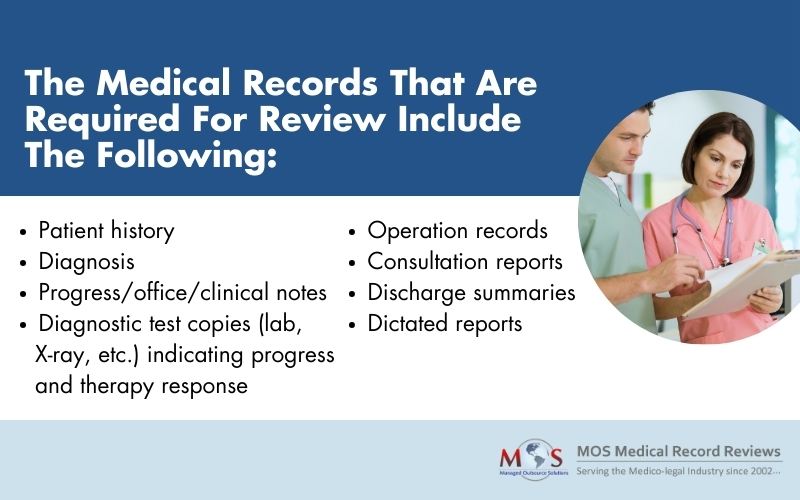Workers’ compensation that provides economic support to injured or ill employees is required to cover temporary employees as well. Medical chart reviews are an important consideration when considering workers’ compensation claims. It is estimated that approximately 2.7 million workers or 10% of the US workforce are considered temporary workers. OSHA (Occupational Safety and Health Act) mandates temporary employers to provide a safe working environment for the people they employ. This means that employers are required to control and correct workplace hazards to which the workers are exposed. Employers should train their workers on safety, provide personal protective equipment to workers, and also perform a workplace hazard evaluation.
Significance of Medical Records and Medical Review Solutions
Temporary staffing agencies are required to maintain all medical records associated with illnesses and accidents of their workers. They are also required to report such illnesses and accidents to OSHA. Medical records are the basis for determining whether a particular treatment provided to the worker is medically necessary and therefore reimbursable by the employer’s insurance company.
Essential Medical Records for Review
The medical documentation helps understand the type of injury the employee sustained, the injured body part, and other relevant details. An accurate medical chart also helps identify whether a worker has any previous health condition. In case the worker has some pre-existing condition that is medically related to his or her claim, the benefits he/she receives may be affected. Pre-existing conditions could worsen or contribute to work-related injuries or illnesses. Such conditions could also compromise recovery or prolong it. This could lead to the insurer denying the claim. Thus, medical records have an important role to play as regards whether an employee’s claim is granted or denied.
Workers’ Compensation Benefits
The employer’s responsibility to provide workers’ compensation benefits varies by each US state. Some states require the temporary staffing agency to provide workers’ compensation to their employees while others require the employer to provide coverage. Benefits are provided to help the injured or ill workers to carry on with their lives after the injury or illness. The exact benefits paid to each worker would depend on the specific injury sustained.
Typical benefits include the following.
- Medical expenses are covered: This would include hospital bills, medication, medical equipment, physical therapy or rehabilitation costs, provided they are considered medically necessary by the treating physician.
- Lost wages: Workers’ compensation coverage may be available for a percentage of the employee’s lost wages while he or she is unable to work.
- Coverage for new job training: Benefits may be available under this category if the injured or ill employee is unable to go back to their old job.
- Disability benefits: Typically, benefits are paid under four categories of disability such as temporary total disability, temporary permanent disability, permanent total disability, and permanent partial disability.
- Death benefits: These benefits are paid to the family of a worker who unfortunately passes away following a workplace injury or illness, and include funeral or burial expenses and financial support to replace a percentage of the deceased worker’s lost wages.
The Role of Medical Records in Workers’ Compensation Claims
Good medical records must be available for any workers’ compensation case. A medical review company assisting workers’ compensation attorneys would therefore ensure that a complete set of medical records is available for detailed review. It is vital to make sure that the documentation is comprehensive and reliable. It should contain the diagnosis, treatment plan, and recovery process. In fact, insufficient documentation is the main reason why workers’ compensation claims are denied or delayed. Apart from the difficulty in obtaining all medical documentation relevant to the workers’ compensation claim, the review process itself is challenging and time-consuming. So, many attorneys prefer to entrust the medical record retrieval and review process to companies providing state-of-the-art medical review solutions.





